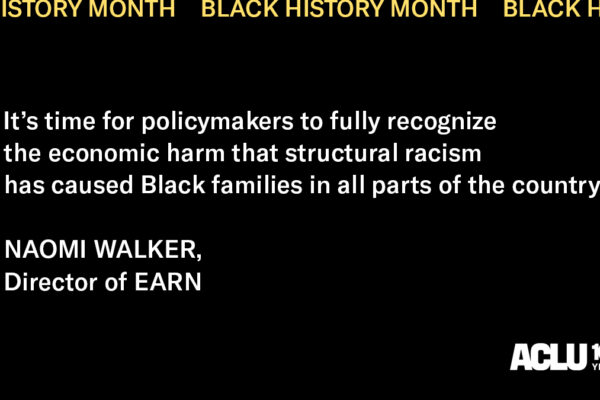Late last year, the Economics Policy Institute Economic Analysis and Research Network (EARN) released a new report which made something glaringly obvious: Ohio still has a major racism problem. The evidence is there in many glaring ways – for instance, Ohio is in the top ten states with the largest ratio between black and white unemployment; Dayton and Cleveland are two of the six metropolitan areas in which poverty among the black population exceeds 40%; and like many Midwestern states, Ohio also imprisons African Americans at more than five times the rate of white individuals.
Here’s the thing, if there is anything that we can do to honor the legacy of Black History Month, then we must do exactly what the Director of EARN, Naomi Walker, suggests – we must hold our policymakers accountable so they “recognize the economic harm that structural racism has caused Black families in all parts of the country. In a time of federal inaction, states must step up to address disparate economic outcomes by strengthening public education, bolstering workers’ rights and strengthening labor standards, and eliminating discrimination.”
So you might ask: how do we hold our policymakers accountable?
To start, we must elect lawmakers who are well aware of the impact of racist and classist policies and actively work against the grain of such. And the timing couldn’t be any better – 2020 is Election Year, and we can take advantage of this opportunity in just a few months!
Then we can do more.
We can also go beyond this in several ways – by actively holding our own leaders and authoritative figures in our workplaces and in the school system accountable when it comes to racial divides and discrimination, we can make changes in our everyday lives to combat this systemic racism.
But then we must go a step further.
Organizations such as the Tamir Rice Foundation, Black Lives Matter, Columbus Urban League, Ohio Conference of the NAACP, the United Black Fund of Greater Cleveland, INC – and many more across the state of Ohio – need support in a variety of different capacities that many of us can fill in one way or another. Whether that means financial support, volunteering for events, or even just showing up and supporting these organizations and individuals involved with them, everything you do can make a difference.
We must stop letting Ohio take the top ranks of perpetuating systemic racism.
And we must also do it in a way that doesn’t make us “saviors,” but posits us to recognize how we’ve maintained this systemic oppression and how to actively dismantle the systems that have been advanced by the people who have been placed in authoritative roles by us.
Only in this way can we live up to the legacy of Black History Month.
And it is imperative that we should.
We owe it to this beautiful state – and more importantly, we owe it to the individuals and communities that we are celebrating this month of February.

